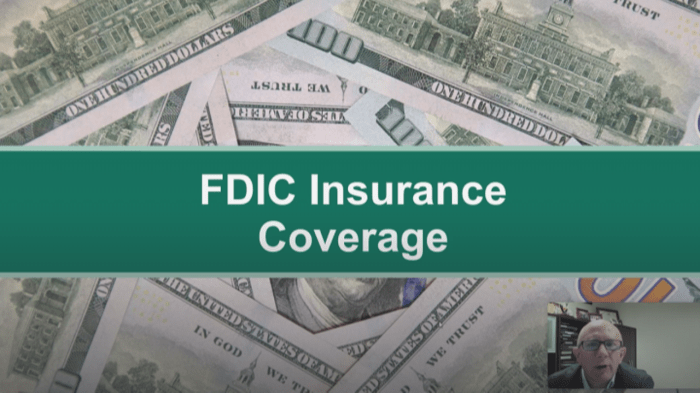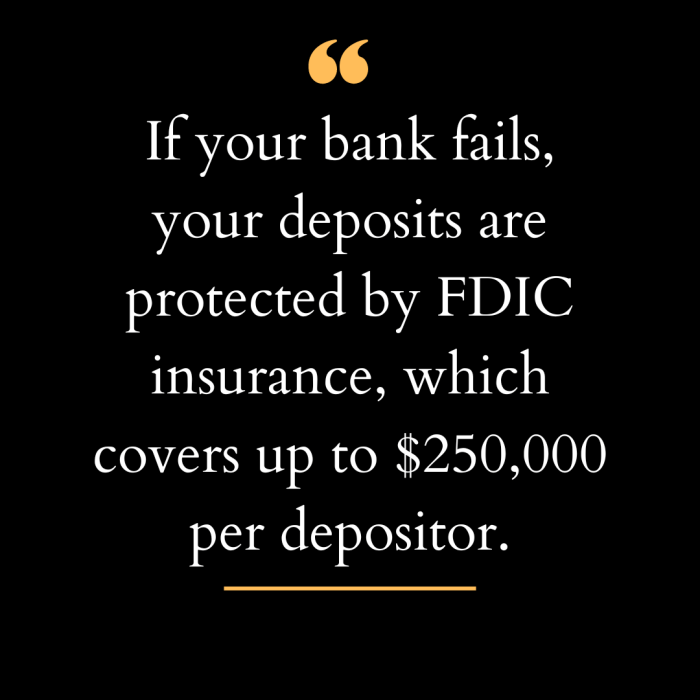Is cit bank fdic insured – The safety and security of your deposits are paramount. When banking with a large institution like Citibank, a common question arises: Is my money protected? The short answer is, yes, most of your deposits at Citibank are insured by the Federal Deposit Insurance Corporation (FDIC). However, understanding the nuances of FDIC insurance is crucial for ensuring your peace of mind.
This comprehensive guide will delve into the specifics of Citibank’s FDIC insurance coverage, addressing common concerns and providing clarity on what’s protected and what might not be.

Source: cs.bank
Understanding FDIC Insurance
The FDIC is an independent agency of the U.S. government created in 1933 to maintain stability and public confidence in the nation’s financial system. Its primary role is to insure deposits in banks and savings associations. This insurance protects depositors from losses if their bank fails. It’s a crucial element of the U.S.
banking system, providing a safety net for consumers.
How Much is Insured?
The standard FDIC insurance coverage is $250,000 per depositor, per insured bank, for each account ownership category. This means that if you have multiple accounts at Citibank under different ownership categories, each category is insured up to $250,000. Understanding these categories is key to maximizing your FDIC coverage.
Account Ownership Categories
The FDIC recognizes several account ownership categories, each with its own insurance coverage limit:

Source: kajabi-cdn.com
- Single Accounts: Accounts held in a single individual’s name.
- Joint Accounts: Accounts held by two or more individuals.
- Revocable Trust Accounts: Accounts held in a revocable trust, where the grantor retains control.
- Irrevocable Trust Accounts: Accounts held in an irrevocable trust, where the grantor relinquishes control.
- Retirement Accounts (IRAs, 401(k)s): These accounts often have separate FDIC insurance coverage considerations.
It’s important to note that the $250,000 limit applies to the sum of all accounts within each ownership category at a single insured bank. For example, if you have a single account with $100,000 and a joint account with $200,000 with the same individual at Citibank, both accounts are fully insured because they fall under separate ownership categories.
Citibank and FDIC Insurance: Is Cit Bank Fdic Insured
Citibank, N.A. is a member of the FDIC. This means that eligible deposits in Citibank accounts are insured up to the maximum limits discussed above. However, it’s essential to understand what constitutes an “eligible deposit.”

Source: surferseo.art
What is Covered by FDIC Insurance at Citibank?, Is cit bank fdic insured
- Checking accounts
- Savings accounts
- Money market accounts
- Certificates of deposit (CDs)
- Certain other deposit accounts
What is NOT Covered by FDIC Insurance at Citibank?
- Investments such as stocks, bonds, and mutual funds
- Insurance products
- Treasury bills and other government securities
- Items held in a safe deposit box
- Credit card balances
- Loans
Maximizing Your FDIC Coverage at Citibank
To maximize your FDIC insurance coverage, consider diversifying your deposits across different ownership categories and, if necessary, across different FDIC-insured institutions. This strategy ensures that a larger portion of your funds is protected in the unlikely event of a bank failure.
Strategies for Maximizing Coverage:
- Open accounts under different ownership categories: This allows you to take advantage of the per-depositor, per-account limit for each category.
- Use different account types: Having funds spread across checking, savings, and CDs can help maximize coverage.
- Consider multiple banks: While inconvenient, spreading your deposits across several FDIC-insured banks provides even greater protection.
Frequently Asked Questions (FAQs)
- Q: How do I verify if my Citibank account is FDIC insured? A: You can check the FDIC website (FDIC.gov) for a list of insured institutions or contact Citibank directly.
- Q: What happens if Citibank fails? A: In the unlikely event of a bank failure, the FDIC would step in to insure your eligible deposits up to the maximum coverage limit.
- Q: What if I have more than $250,000 in a single account? A: Only the first $250,000 would be insured by the FDIC. You should consider strategies to diversify your deposits.
- Q: Does FDIC insurance cover international accounts? A: No, FDIC insurance only covers accounts held at FDIC-insured institutions within the United States.
- Q: How long does it take to get my money back if my bank fails? A: The FDIC aims to make insured funds available quickly, often within a few days.
References
Call to Action
Protecting your hard-earned money is crucial. Review your deposit accounts at Citibank and other institutions to ensure you understand your FDIC coverage. If you have questions, don’t hesitate to contact Citibank customer service or visit the FDIC website for more information. Take control of your financial security today!
General Inquiries
What is the FDIC insurance limit for CIT Bank accounts?
The standard FDIC insurance limit is $250,000 per depositor, per insured bank, for each account ownership category.
Does CIT Bank offer any additional FDIC insurance options?
CIT Bank adheres to standard FDIC insurance regulations. They do not typically offer supplemental FDIC insurance beyond the standard limits.
Where can I find more information about FDIC insurance?
Visit the official FDIC website (FDIC.gov) for comprehensive details on deposit insurance coverage.
What types of accounts are covered by FDIC insurance at CIT Bank?
Checking accounts, savings accounts, and money market accounts are generally covered. Specific details may vary; consult CIT Bank directly or the FDIC website for clarification.
